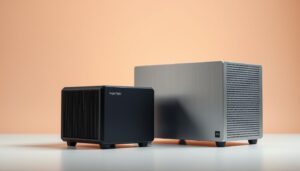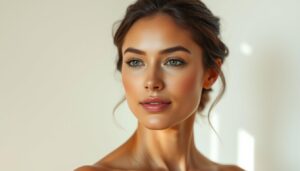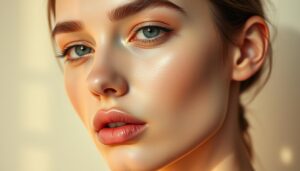
In the ever-evolving beauty industry, AI is creating a seismic shift, particularly in how personalized user experiences are crafted. The integration of machine learning and natural language processing allows brands to offer bespoke beauty solutions that go beyond mere product recommendations. Apps like L’Oréal’s Makeup Genius and Sephora’s chatbot Ora demonstrate the power of AI in delivering real-time virtual try-ons and personalized skincare advice. Meanwhile, successful campaigns such as Neutrogena’s “Skin360” and Estée Lauder’s AR try-ons showcase the practical benefits of AI, from assessing skin health to offering personalized tutorials. As AI continues to innovate in marketing and product customization, the future promises even more sophisticated, personalized, and sustainable beauty experiences.
Have you ever thought about how technology is changing the way we think about beauty and skincare? It’s incredible to see how Artificial Intelligence (AI) has been revolutionizing the cosmetics industry, giving us personalized user experiences that were unimaginable just a few years ago. Let’s dive into how AI is making this transformation happen.

This image is property of pixabay.com.
Introduction to AI in Cosmetics
The cosmetics industry has always been about innovation, but AI is taking it to a whole new level. We’re no longer just talking about advanced product formulations or sleek packaging; AI is enhancing our entire beauty experience from start to finish. This isn’t just about futuristic robot beauty therapists; it’s about smart technology being seamlessly integrated into our daily routines.
Whether it’s helping us choose the perfect shade of foundation, providing customized skincare advice, or offering virtual makeup trials, AI is making beauty more accessible and personalized.
Defining AI in Cosmetics
So, what exactly do we mean when we talk about AI in the cosmetics industry? First off, it’s important to clarify that AI doesn’t mean robots applying our makeup or giving us facials. Instead, it’s about using sophisticated algorithms and smart technology to enhance our beauty routines.
Take the example of Proven Skincare. This company uses AI algorithms to analyze a variety of factors, such as your skin type, lifestyle, and environmental conditions, to recommend a personalized skincare regimen. This is a prime example of how AI is being used to provide personalized beauty advice, helping us navigate the overwhelming number of products on the market.
Key AI Technologies
There are several key AI technologies driving these innovations in the cosmetics industry, and they each have unique applications.
Machine Learning
Machine learning is at the heart of many AI-driven beauty applications. For instance, L’Oréal’s Makeup Genius app is a fantastic demonstration of how machine learning and augmented reality (AR) can work together. The app lets you virtually try on makeup in real-time, using your smartphone camera. It learns from your preferences and improves the recommendations the more you use it.
Natural Language Processing (NLP)
Then there’s Natural Language Processing (NLP), which is crucial for creating interactive and engaging beauty experiences. Take Sephora’s chatbot, Ora, as an example. Ora makes use of NLP to understand your skincare concerns and provide personalized product recommendations. It’s like chatting with a knowledgeable friend who knows everything about the latest beauty products.
Applications in Marketing
AI’s impact on the cosmetics industry isn’t limited to personal beauty routines; it’s also transforming how brands market their products and engage with customers.
Personalized Beauty Recommendations
One standout example is Alibaba’s AI Beauty Advisor, which gives personalized skincare tips based on selfies. You simply upload a photo, and the AI analyzes your skin, providing tailored advice on which products would work best for you.
Virtual Try-On Experiences
Another exciting development is virtual try-on technology. L’Oréal’s Modiface allows users to see how different makeup products will look on them before making a purchase. This not only enhances the shopping experience but also reduces returns and increases customer satisfaction.
Table: Leading AI-Powered Apps and Their Functions
| Brand | App/Technology | Function |
|---|---|---|
| L’Oréal | Makeup Genius | Real-time virtual makeup try-ons using AR |
| Sephora | Ora (Chatbot) | Personalized product recommendations via NLP |
| Alibaba | AI Beauty Advisor | Personalized skincare tips from selfies |
| Proven Skincare | Personalized algorithms | Tailored skincare advice based on individual needs |

This image is property of pixabay.com.
Successful AI-Driven Campaigns
Several brands have launched successful AI-driven campaigns, showing just how potent this technology can be.
Neutrogena’s “Skin360” App
Neutrogena’s “Skin360” app is a great example. It uses your smartphone camera to analyze your skin and provide personalized skincare recommendations. This form of AI tech not only helps consumers make informed decisions but also builds a deeper connection with the brand.
Estée Lauder’s AR Try-Ons
Estée Lauder has also made strides with AR technology. Their virtual makeup try-ons allow users to experiment with different looks, making it easier to decide on purchases without even visiting a store.
MAC Cosmetics’ Virtual Makeup Workshops
MAC Cosmetics has taken a more educational approach by offering virtual makeup workshops. These sessions use AI to provide personalized tutorials and product recommendations, making makeup application easier and more fun for users.
Ethical Considerations
With all these advancements, it’s essential to address the ethical considerations, particularly around data privacy. When you use an app that analyzes your face or skin, you’re sharing a lot of personal information. Brands must ensure that this data is kept secure and used responsibly.
Moreover, the use of facial recognition technology comes with its own set of ethical implications. Companies need to be transparent about how they use this technology and ensure they comply with all relevant privacy laws.

This image is property of pixabay.com.
Future Trends and Developments
The future of AI in the cosmetics industry looks bright, with several exciting trends and developments on the horizon.
AI-Driven Skincare Customization
Looking ahead, we can expect AI to play an even more significant role in personalizing skincare routines. Future AI technology will be able to adapt to our changing skin needs, offering even more accurate and dynamic recommendations.
Augmented Reality Shopping
Virtual try-ons will become more sophisticated, transforming the online shopping experience. Imagine being able to see exactly how a product will look on you in real-time, making shopping more fun and less daunting.
AI-Enhanced Sustainability
Sustainability is a crucial focus for the future, and AI will guide cosmetic brands towards more eco-friendly practices. From optimizing supply chains to reducing waste, AI will help make the beauty industry greener and more sustainable.
Table: Future Trends in AI and Cosmetics
| Trend | Description |
|---|---|
| AI-Driven Skincare Customization | Enhanced personalized routines adapting to skin changes |
| Augmented Reality Shopping | More sophisticated virtual try-ons for enhanced experiences |
| AI-Enhanced Sustainability | AI helping brands adopt sustainable, eco-friendly practices |
Conclusion
As we can see, AI is revolutionizing the cosmetics industry in many ways, from product recommendations to virtual try-ons and personalized skincare advice. This blend of technology and beauty is creating more engaging, informative, and personalized user experiences.
Looking to the future, it’s clear that AI will continue to drive innovation in the beauty industry, making it more accessible and sustainable. However, we must also remain mindful of the ethical considerations associated with these advancements, especially concerning data privacy and facial recognition technology.
In a world where technology is constantly advancing, it’s exciting to think about how AI will continue to shape our beauty routines, making them more personalized and eco-friendly than ever before. So next time you use your favorite beauty app or get advice on the perfect skincare product, remember: you’re experiencing the wonders of AI in action.








Your point of view caught my eye and was very interesting. Thanks. I have a question for you.
Your article helped me a lot, is there any more related content? Thanks! https://www.binance.com/en/register?ref=JHQQKNKN